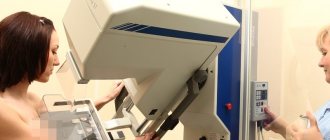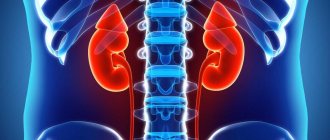Why is HPV dangerous, and why do you need to be vaccinated against it?
Papillomavirus is one of the most common sexually transmitted diseases, from which even the use of barrier methods of contraception does not protect 100%. It is believed that up to 80% of the world's population are carriers of this virus at one time or another in their lives.
No cure has yet been invented against it, but there is good news - in most cases, within two years after the moment of infection, the virus goes away on its own, often asymptomatically. The exception is those types of HPV that cause the appearance of papillomas or warts. They are easy to remove, but no one can guarantee that they will not appear again. And the most dangerous are viruses of types 16 and 18, which cause cervical cancer in women and other types of oncology of the genital organs, mouth and pharynx in both sexes.
Therefore, the invention of a vaccine against the most dangerous strains of HPV was a real breakthrough. It prevents 90% of cases of cancer of the cervix, vulva, anus, penis, and oropharynx.
Vaccine options
There are currently two vaccines available that protect against HPV 16 and 18, which are known to cause at least 70% of cervical cancers.
These vaccines may also provide some cross-protection against other, less common types of HPV that cause cervical cancer. One of these vaccines also protects against HPV types 6 and 11, which cause anogenital warts. Human papillomavirus vaccines contain major L1 capsid proteins that themselves assemble into virus-like particles (VLPs). These particles do not contain viral genetic material and are therefore not infectious. Currently, 2 vaccines against human papillomavirus infection are registered in the Russian Federation: the Gardasil vaccine and the Cervarix vaccine. The vaccines contain the most common oncogenic and non-oncogenic HPVs. The development and registration of HPV vaccinations in our country have determined the possibility of primary prevention of cervical cancer.
Will vaccination be effective if I am over 27 years old?
Until recently, vaccination was not prescribed after 27 years of age, but not because it could negatively affect the body. The thing is that its effectiveness at this age has not been proven. That is, it was believed that by the age of 28 a person had already become familiar with the virus in one way or another, and there was no point in vaccination.
However, in 2021, the Food and Drug Administration (USA) approved vaccination against the papilloma virus for men and women over 27 years of age. The experience of Australia is also impressive, where they vaccinate all minors under 19 for free and recommend that all adults do it themselves at their own expense. Scientists believe that thanks to such universal vaccination, the number of cervical cancers will drop to 400 cases per year within 10 years, and after 50 years, the problem will be almost completely overcome.
So if you are over 27 years old and sexually active, the HPV vaccine is still an effective cancer prevention method.
What to do if the next vaccination date is missed?
The minimum acceptable interval between the first and second doses of the vaccine is 4 weeks, the minimum interval between the second and third doses is 12 weeks. Therefore, an accelerated vaccination schedule is sometimes allowed. If the vaccine schedule is interrupted, there is no need to start the entire series over. If vaccination is interrupted after the first dose, the second dose should be given as soon as possible and separated from the third dose by at least 12 weeks. If only the third dose is delayed, it should be given as quickly as possible. If the interval between vaccinations is violated, the vaccination course is considered completed if three doses are administered within 1 year.
Will the vaccine help if the virus is already in the body?
According to the latest research from the National Cancer Institute in the United States, if a person is already infected with HPV, the vaccine will protect him from all other types of the virus. And if self-healing occurs, it will prevent re-infection. That is, the vaccine, unfortunately, will not be able to cure you of an existing infection, but will reduce the risk of cancer.
This is why experts do not even recommend getting tested for HPV before vaccination, since the test result does not affect the advisability of vaccination.
Contraindications
Infection with one of the types of HPV included in vaccines is not a contraindication to vaccination; but you should consult your doctor and gynecologist about the need for such vaccination. HPV vaccines are contraindicated in the following cases: allergies to any component of the vaccine, severe allergic reactions to previous administration of this drug, pregnancy. As with any vaccination, temporary contraindications to vaccination are acute diseases and exacerbations of chronic diseases. In such cases, the HPV vaccine is postponed until recovery.
Expert opinion
We decided to introduce you to the reviews of the center’s doctors about HPV vaccination.
Kruglova Irina Ivanovna: “I recommend that my patients get vaccinated. After all, the risks are minimal, the drugs are absolutely safe. But what is the result - you protect yourself from cancer! Cervical cancer, which accounts for 7.5% of all deaths among women from cancer. And it’s great that the effect exists regardless of age and even the presence of the virus in the blood. But we must remember that vaccination does not cancel regular screening for cervical cancer: once a year it is still necessary to undergo smear cytology or PCR.”
Akhmedova Larisa Maratovna: “When my patients ask me whether to get vaccinated against HPV, I always ask - what do you have to lose? Yes, the vaccine is not free. But its cost is incomparable to what women have to go through when faced with oncology and even genital warts. If you are already 30 years old, technically you could not be vaccinated at 10 years old, as recommended by WHO. But the vaccine is also effective after the onset of sexual activity, when you could theoretically encounter papillomavirus. There are 190 species of them, but only 2 are deadly, and we can completely protect ourselves from them today.”
HPV vaccination: five main questions
Prevention of cervical cancer is based on two pillars: regular screening (which we wrote about in the previous article “Tests for HPV”) and vaccination. Both whales limp with all their flippers, so the morbidity and mortality statistics still look sad. Today we will try to answer the most common questions about HPV vaccination.
Who should be vaccinated?
This issue is the subject of fierce battles among experts. Agreement was reached on only one point: children and adolescents
, ideally
before sexual debut
, because the vaccine can prevent infection, and not drive away the virus that has already settled. In October 2012, WHO officially included the HPV vaccine for girls in the WHO immunization schedule.
This means that all countries in the world that have recognized the primacy of WHO (the Russian Federation recognizes it) must include this vaccine in their national calendars. The optimal age for vaccination is currently considered 9–13 years. Controversy still exists regarding vaccination of adults. In our country, vaccination is recommended (but, alas, not mandatory) for girls and women under 45 years of age.
As of May 15, 20211, 80 countries around the world have included the HPV vaccine in their national immunization programs for girls. The vaccine is widely authorized in the United States and Japan.
What types of HPV vaccines are there?
There are currently three options to choose from.
Cervarix
- protects against the two most “evil” types of HPV (16 and 18). About 70% of cervical cancer cases are associated with these types of viruses. The vaccine can be given to girls and boys aged 9–10 years (two doses: administered and repeated after 5–13 months). If the child is already 15 years old at the time of vaccination, three doses should be administered over the course of a year (the first administration, after 4-10 weeks - the second administration and after 5-12 months from the start of vaccination - the third).
Gardasil
- protects against four types of HPV: 16 and 18 (highly oncogenic) + 6 and 11 (cause genital warts). Girls and boys aged 9–13 years are given two doses of the vaccine (administer and repeat after 6 months). From 14 years of age, three injections are recommended (introduction, after 2 months and after 6 months). An accelerated vaccination program is possible: administration after a month and after another 3 months.
If the child has already begun to be sexually active, then vaccination is carried out three times, regardless of age.
Gardasil-9, is being prepared for registration in our country.
, which protects against 9 types of HPV (approved in the USA since December 2014). The vaccination regimen will be similar2.
How effective is this anyway?
Bulletins on vaccination are regularly published on the WHO website, including in Russian (May 2021). They are written by large teams of experts after carefully studying the most complete evidence base.
Modern research shows that a full course of vaccination before the onset of sexual activity reduces the risk of developing HPV-associated cancer by 99%. Even a single dose of Cervarix provides 100% seroprotection against HPV-16 and HPV-18 for 4 years3.
There has been no discussion in the world for a long time about “is HPV vaccination necessary?” Experts are only discussing the question “is revaccination necessary?” Today it is believed that it is not needed. Although long-term studies are still underway. For Cervarix and Gardasil, protection lasts at least 10 years. This is an excellent result.
In Australia, thanks to mass vaccination with Gardasil, after 3 years the incidence of genital warts decreased by 73%, and precancerous diseases of the cervix decreased by 38%. After 10 years, virtually no HPV-associated diseases are registered on the mainland.
Do I need to get tested for HPV before vaccination?
A big misconception is that the vaccine can only be administered to those who do not have HPV infection, because “if you introduce the virus, it will only get worse.” Firstly, there is no virus in the vaccine - neither live nor weakened. These are proteins of the viral shell, to which the body begins to respond by producing antibodies. So it will not be possible to “infect” or worsen vaccination.
All vaccines against HPV infection have been proven to induce cross-immunity to other variants of the virus in addition to HPV-16 and 18, this is especially true for types 31, 33, 45, 52 and 58. Of course, vaccination works best in “naive” people. — those whose bodies have not yet become acquainted with the virus, but those who have already encountered the infection can receive protection.
That is why there is now more and more talk about the need to vaccinate women who have recovered from precancerous cervical diseases (CIN). Life is long, and re-infection with HPV is quite possible.
Can there be side effects?
Millions of people around the world are now vaccinated against HPV. It is known that sometimes there is redness and soreness at the injection site. Rarely, a slight increase in temperature, headache and dizziness, nausea, and fainting occur.
The WHO Global Advisory Committee on Vaccine Safety regularly reviews evidence on the safety of HPV vaccines, with its most recent conclusion in January 2021 that the available evidence does not raise health safety concerns.4
***
Although vaccination is the best way to prevent HPV-associated diseases and cervical cancer, it does not eliminate routine cervical screening. First, some rare cases of cervical cancer are not associated with HPV. Secondly, protection against HPV is good, but not absolute. However, by analogy with other vaccinations, although vaccinated people can get sick, they practically do not have a severe course of the disease or complications.
Oksana Bogdashevskaya
Photo istockphoto.com
1 Data source: WHO/IVB Database, as of 15 May 2021. Map production Immunization Vaccines and Biologicals (IVB), World Health Organization.
2 Petrosky E, Bocchini JA Jr, Hariri S. et al. Use of 9-valent human papillomavirus (HPV) vaccine: updated HPV vaccination recommendations of the advisory committee on immunization practices. Centers for Disease Control and Prevention (CDC). MMWR Morb Mortal Wkly Rep 2015; 64:300–4.
3 Safaeian M et al. Durable antibody responses following one dose of the bivalent human papillomavirus L1 viruslike particle vaccine in the Costa Rica vaccine trial. Cancer Prev Res, 2013; 6:1242–1250.
4Background documents and presentations presented during the SAGE meeting in October 2021. https://www.who.int/immunization/sage/meetings/2016/october/presentations_background_docs/en/
Should boys be vaccinated?
The vaccine is also effective for boys, but experts debate whether widespread vaccination is justified, weighing the cost of the vaccine against the incidence of penile and anal cancer. In 2012-2014 studies in the United States, HPV vaccination was also offered to boys. We recommend, if possible, that boys be vaccinated against HPV, as the prevalence of anal cancer is growing, and genital warts are also not harmless and can lead to delayed and painful urination.
Who is recommended for Gardasil vaccination?
Children and teenagers from 9 to 17 years old, young women from 18 to 26 years old. Ideally, you should be vaccinated against HPV before your first sexual contact, since the vaccine is most effective for those girls and women who have not yet been infected with any of the HPV types included in it. Sexually active women can also be vaccinated, but in this case the vaccine will only protect them against types of HPV that they have not yet been infected with.
Hygiene, hardening and vitamins
— What measures are necessary, in addition to vaccination?
— We can only vaccinate girls from the age of 9, and viral diseases occur even before this age. And in young children, condylomatosis and papillomatosis occur not only in the genital organs, but also in other localizations. The most dangerous thing is laryngeal papillomatosis in newborns and infants. They become infected when passing through the birth canal of an infected mother. This is why it is important to vaccinate girls, they are future mothers. And if they themselves do not get sick, they will not infect their children. Also, to increase a child’s immunity, general strengthening procedures are important first of all: maintaining a sleep and rest schedule, hardening, walks in the fresh air, good nutrition, treatment of chronic diseases. Of course, maintaining hygiene. If someone in the family suffers from some kind of infection, then the child should not sleep with the parents in the same bed, because the parents may have a sexually transmitted disease, and for the child - a household contact disease. The child must have his own hygiene items, his own dishes, his own bed, his own towels. The child should be taught to fold their underwear correctly and store it on a separate shelf where there is no outerwear. If a child attends a swimming pool or other sports activities, he must be taught not only safety rules, but also hygiene rules.
— What work is being done to educate the public about the importance of HPV vaccination?
— We are conducting an information and communication campaign together with the Moscow Department of Health. We inform mothers, girls, teenagers, teachers that there is a virus, there are diseases caused by this virus, and why these diseases are dangerous. We tell you that this virus can cause precancerous and cancerous diseases. As the chief pediatric gynecologist of the city of Moscow, I regularly hold meetings with district specialists and say how important it is to convey this information to parents. Often mothers do not know about the possibility of vaccination, do not know who to ask, or do not even know about the existence of such a doctor as a pediatric gynecologist. Today in Moscow, every clinic has a gynecologist for children and youth; there is no shortage of these specialists. Therefore, if you want to take your daughter to a pediatric gynecologist, then just ask the pediatrician about it. HPV vaccination is now carried out in schools, and girls are offered the vaccine. Sometimes mothers begin to consult with each other in their chats, look for information on their own on the Internet, but, of course, it would be good if they asked a specialist about this. And it is very important that we, obstetricians-gynecologists and pediatricians, give parents this information. I blog on Instagram - @doctor_karachentsova - where I try to tell mothers in an accessible way about the most pressing issues related to women's health.
Is there a treatment for HPV? More details
— What else is important to know about maintaining a girl’s health?
— Taking care of women's health should begin from birth. For some reason, everyone thinks that this should be done when she becomes a teenager, and some believe that before marriage you should completely forget about the gynecologist. This is wrong. After all, children have all the same diseases in the field of gynecology as adults: inflammatory diseases, uterine bleeding, menstrual irregularities, sexual development, malformations of the genital organs and many others. It happens that a girl’s belly grows, the mother thinks that the child has simply gained weight, but an ovarian tumor develops inside. Tumors often hide under the guise of obesity. My colleagues and I specially created a reminder for mothers. There are only 20 points in it. It popularly explains what complaint you need to pay attention to in order to go to a pediatric gynecologist in order to see a doctor on time and prevent advanced cases.
How effective is the Gardasil vaccine?
It is 100% effective in preventing diseases caused by the four types of HPV included in it, if the woman has not yet been infected with them. For women who have already been infected, the effectiveness is somewhat less.
It is important that pre-existing HPV infections cannot be cured by vaccination. More importantly, approximately 30% of cervical cancers are caused by rarer types of HPV and therefore cannot be prevented by vaccination. Therefore, vaccinated girls and women should, nevertheless, regularly conduct a PAP test.
How to reduce the risk of HPV infection?
The risk of HPV infection is reduced only by sexual abstinence or mutually monogamous relationships with an uninfected sexual partner. However, if the partner has been sexually active in the past, monogamy also cannot protect against infection. A condom does not protect against HPV infection, since infection occurs through contact with the skin and genitals of a partner. However, it has been observed that using a condom reduces the risk of cervical cancer caused by HPV.
But only vaccination completely protects against the risk of HPV and cervical cancer.
Prevention and treatment of diseases associated with HPV
Human papillomavirus is a dermatological disease. Therefore, if rough formations similar to warts appear on the body or mucous membranes of the genital organs, it is necessary to consult a dermatologist, and not a therapist or surgeon. The main method of preventing human papillomavirus infections is to observe personal hygiene measures when communicating with sexual partners. It is people who are the main reservoir and source of infection. Papillomas that appear on the body are treated with ointments and antiviral drugs taken orally or administered intramuscularly.









